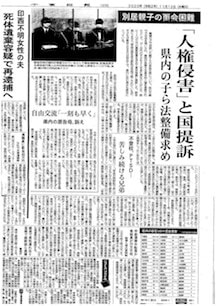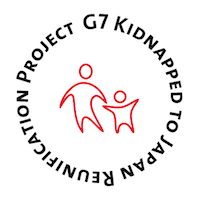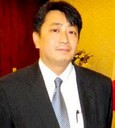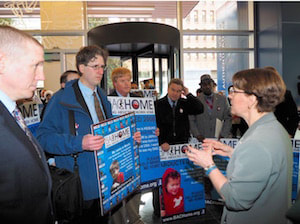“As our two countries continue to take steps to strengthen our democratic, economic and security ties, I would like to draw your attention to an open wound that threatens to derail many ongoing efforts,” Smith wrote in his letter to Fumio.
“To date, more than 500 American children have been abducted to Japan by one of their respective parents and remain separated from their American parent. These abductions often occur against pre-existing court orders and, in some cases, with the passport assistance of the Japanese government,” Smith said in the letter.
In his letter, Smith cited just a few of the parents who have been denied access to their children in Japan, including Jeffery Morehouse—who has been fighting for the return of his young son Mochi since 2010 and has testified at several congressional hearings chaired by Smith. Despite having legal custody in Washington State which was recognized by Japanese courts, Morehouse still cannot gain access to his son in Japan.
Other parents who have testified before Smith’s committee and who were named in his letter include Retired Navy Capt. Paul Toland, Former Marine Corps Sgt. Michael Elias, and Randy Collins of California.
“For the sake of the children who are suffering, and for the sake of U.S. and Japanese relations, I seek your public commitment to reunite these families,” Smith continued in the letter. “I respectfully request that you work with the United States to create a process by which families can be reunited and heal.”























 RSS Feed
RSS Feed